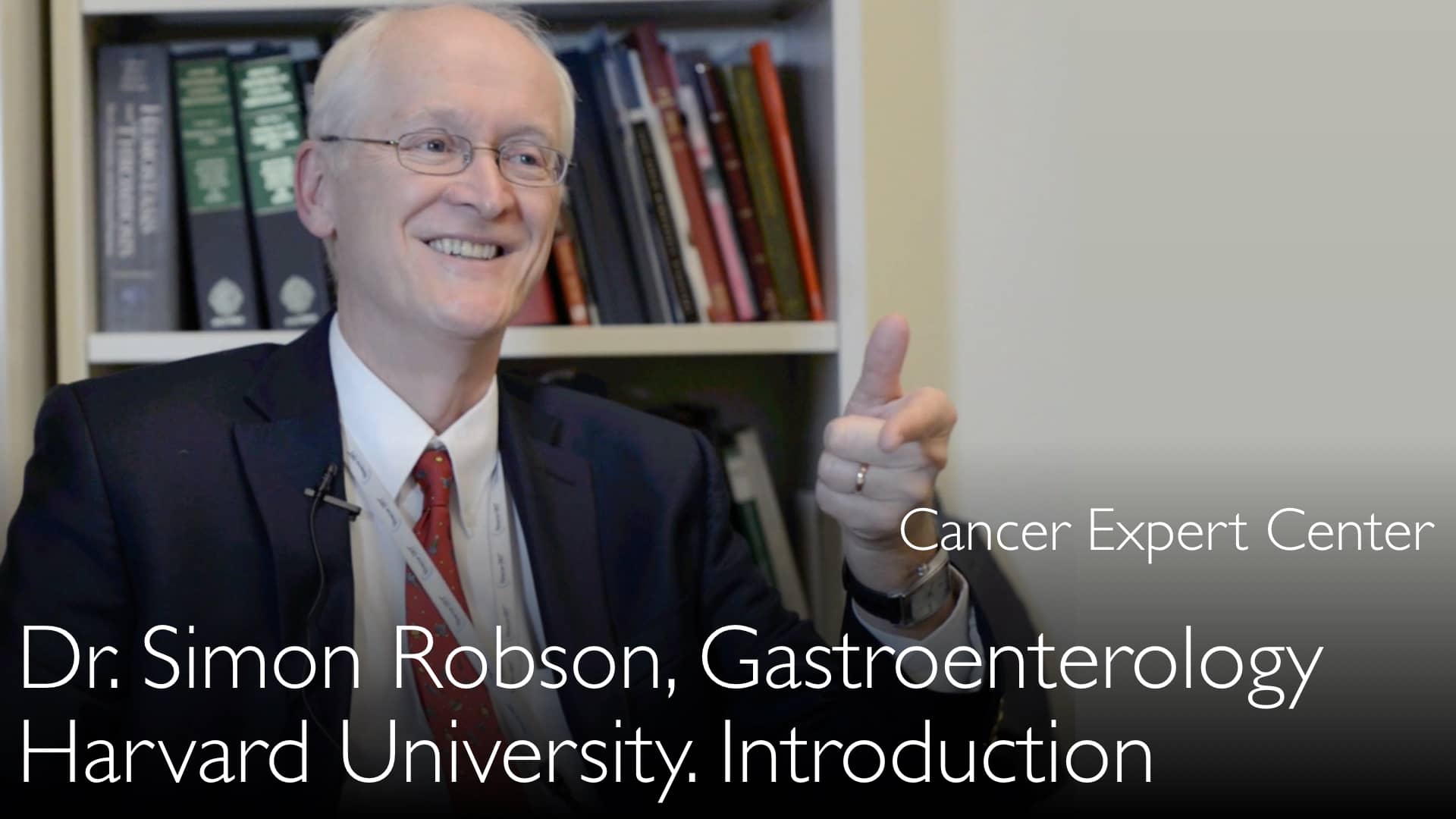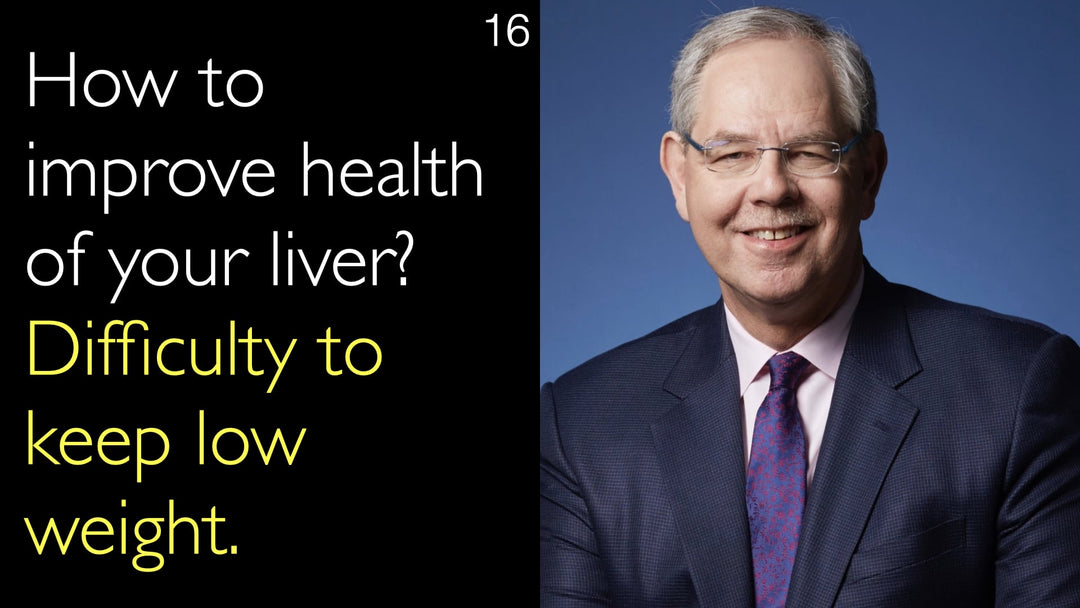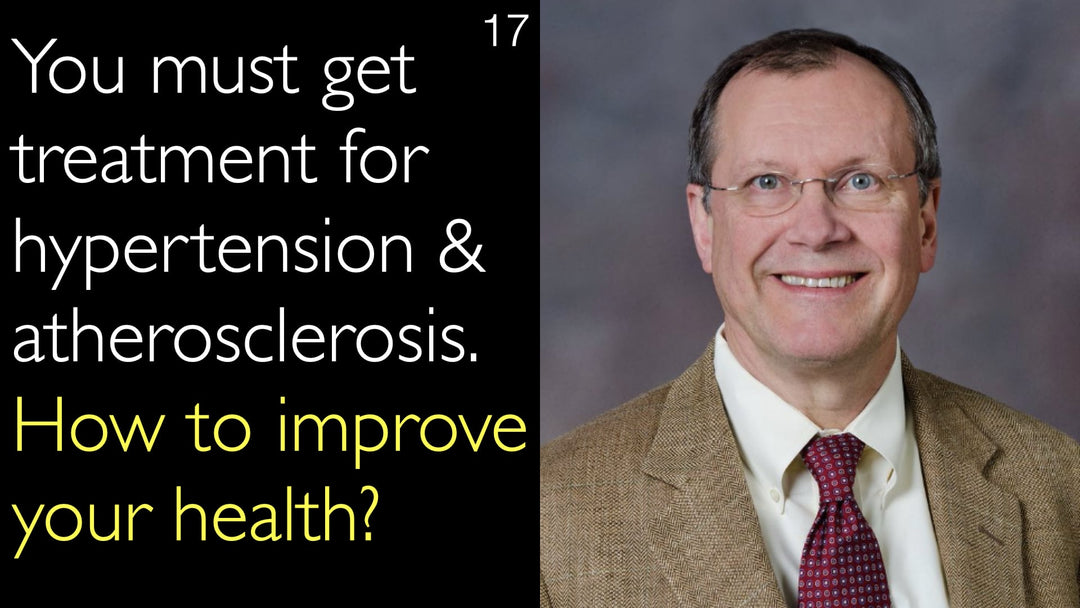O renomado gastroenterologista e pesquisador do microbioma, Dr. Simon Robson, explica como a dieta ocidental altera as bactérias intestinais e contribui para o surgimento de doenças autoimunes. O transplante de microbiota fecal (TMF) é um tratamento altamente eficaz contra infecções por C. difficile e demonstra potencial no manejo de doenças inflamatórias intestinais. A hipótese da higiene oferece uma explicação para o aumento dos casos de asma e condições autoimunes em países desenvolvidos. Até mesmo as bactérias intestinais possuem ritmos circadianos próprios, que podem ser desregulados por fatores como o jet lag.
Saúde do Microbioma Intestinal, Transplantes Fecais e o Impacto da Dieta Ocidental
Navegar para a Seção
- Dieta Ocidental e Alterações na Bactéria Intestinal
- Hipótese da Higiene Explicada
- Aplicações do Tratamento com Transplante Fecal
- Ritmos Circadianos e Jet Lag Bacteriano
- Futuro da Pesquisa do Microbioma
- Transcrição Completa
Dieta Ocidental e Alterações na Bactéria Intestinal
O Dr. Simon Robson, MD, detalha como a dieta ocidental moderna altera fundamentalmente a composição das bactérias intestinais. Alimentos altamente processados e gorduras saturadas perturbam o delicado equilíbrio do microbioma intestinal. O Dr. Simon Robson, MD, explica que fertilizantes artificiais, um produto da agricultura moderna, introduzem nitrogênio fixo em nosso suprimento alimentar. Essa mudança na nutrição, embora apoie o crescimento populacional, contribui para a supernutrição e doenças associadas.
Essas mudanças dietéticas não se limitam a nações ocidentais. O Dr. Anton Titov, MD, observa que a obesidade e doenças do tipo "dieta ocidental" agora são prevalentes no mundo em desenvolvimento. A alteração dos componentes alimentares, incluindo partes glúten e não glúten dos grãos, é um fator significativo nessa mudança global de saúde.
Hipótese da Higiene Explicada
A hipótese da higiene oferece uma explicação convincente para o aumento de condições autoimunes e alérgicas. O Dr. Anton Titov, MD, referencia um estudo comparando crianças finlandesas e crianças do noroeste da Rússia. Populações geneticamente similares mostraram taxas dramaticamente diferentes de asma e níveis de imunoglobulina IgE. Crianças finlandesas, vivendo em um ambiente mais limpo, apresentaram indicadores mais altos de alergia e taxas de asma.
O Dr. Simon Robson, MD, conecta esse conceito a doenças gastrointestinais. Ele afirma que a falta de exposição microbiana pode fazer com que o sistema imunológico ataque o próprio corpo. Esse mecanismo está implicado no aumento da incidência de doença inflamatória intestinal, doença de Crohn e colite ulcerativa.
Aplicações do Tratamento com Transplante Fecal
O transplante de microbiota fecal (TMF) é um tratamento inovador para restaurar a saúde intestinal. O Dr. Simon Robson, MD, confirma sua eficácia notável, particularmente para infecção por Clostridium difficile. O TMF alcança uma taxa de sucesso de aproximadamente 90% para C. diff, frequentemente exigindo apenas um único tratamento.
O procedimento envolve transferir fezes de um doador saudável para o cólon do paciente durante uma colonoscopia. O trabalho do Dr. Robson em Harvard envolve usar TMF para tratar condições mais complexas como doença inflamatória intestinal. Embora os resultados de curto prazo sejam muito bons, essas condições frequentemente exigem correções repetidas do microbioma. Essa modalidade de tratamento barata representa um avanço significativo no manejo de doenças gastrointestinais difíceis.
Ritmos Circadianos e Jet Lag Bacteriano
As bactérias intestinais possuem seus próprios ritmos circadianos internos, uma área fascinante de pesquisa destacada pelo Dr. Simon Robson, MD. Esses programas circadianos bacterianos são dirigidos principalmente por padrões de ingestão alimentar, não por exposição à luz. Quando uma pessoa viaja através de fusos horários, seu corpo se ajusta ao novo ciclo dia-noite.
No entanto, o microbioma experimenta sua própria forma de jet lag. O Dr. Simon Robson, MD, explica que as bactérias podem ficar dessincronizadas por seis a oito horas. Leva tempo para a comunidade bacteriana intestinal redefinir seus ritmos para se alinhar com o novo horário de alimentação no fuso horário diferente.
Futuro da Pesquisa do Microbioma
As aplicações potenciais da pesquisa do microbioma estendem-se muito além dos tratamentos atuais. O Dr. Simon Robson, MD, aponta para experimentos fascinantes onde transplantes fecais transferiram obesidade ou magreza entre camundongos. Essa pesquisa sugere que a correção do microbioma poderia desempenhar um papel futuro no manejo de condições metabólicas como obesidade em humanos.
O Dr. Anton Titov, MD, enfatiza a importância desse campo para desenvolver tratamentos novos e baratos. Compreender a intrincada relação entre dieta, bactérias intestinais e saúde abre portas para novas estratégias terapêuticas para uma ampla gama de doenças autoimunes e inflamatórias.
Transcrição Completa
Dr. Anton Titov, MD: A dieta ocidental altera as bactérias intestinais. A terapia de transplante fecal é cada vez mais usada para restaurar o equilíbrio da flora intestinal. Como o transplante de microbiota fecal é usado no tratamento da doença inflamatória intestinal, doença de Crohn e colite ulcerativa?
A dieta ocidental leva à doença intestinal autoimune. As bactérias intestinais têm seus próprios ritmos circadianos. A dieta ocidental altera as bactérias intestinais.
Dr. Simon Robson, MD: A terapia de transplante fecal é um tratamento eficaz para infecção por Clostridium difficile. A transferência de microbiota fecal também pode tratar colite ulcerativa.
O transplante de microbiota fecal (TMF ou transplante fecal) também pode tratar doença de Crohn. A hipótese da higiene explica por que a colite ulcerativa e outras doenças autoimunes aumentam em incidência. A dieta ocidental altera as bactérias intestinais em adultos e adolescentes. É por isso que a terapia de transplante fecal é necessária para mais pacientes com doenças autoimunes.
A segunda opinião médica ajuda a garantir que o diagnóstico de colite ulcerativa e doença de Crohn esteja correto e completo. A segunda opinião médica também ajuda a escolher o melhor tratamento para colite ulcerativa.
O transplante fecal para Clostridium difficile tem sido muito eficaz na primeira tentativa. O transplante fecal também pode desempenhar um papel na obesidade e doença autoimune.
Dr. Anton Titov, MD: Como alterar as bactérias intestinais para perder peso?
Transplantes fecais podem ser úteis para restaurar o equilíbrio do microbioma intestinal. É por isso que entender as bactérias intestinais é importante para a medicina e pode levar a tratamentos novos e baratos. A dieta ocidental altera as bactérias intestinais devido a alimentos altamente processados e gorduras saturadas.
Pacientes com colite ulcerativa podem se beneficiar da terapia de transplante fecal. A dieta ocidental altera as bactérias intestinais. Transplante fecal em colite ulcerativa. Transferência de microbiota fecal.
Dr. Simon Robson, MD: Isso foi discutido anteriormente. A alteração de componentes glúten e não glúten em grãos por radiação e seleção é apenas uma mudança na alimentação moderna.
Outras mudanças são fixação de nitrogênio e fertilizantes. Alta energia do petróleo é usada para fazer fertilizantes. Provavelmente 20% a 30% do nitrogênio em nossos corpos vêm da fixação artificial de nitrogênio em fertilizante.
O processo artificial para fixar nitrogênio e fazer fertilizantes permite uma nutrição muito melhor. Isso alimenta o crescimento populacional no mundo em desenvolvimento. A população mundial aumentou de 3 para 7 bilhões. A supernutrição é um problema no mundo em desenvolvimento.
Dr. Anton Titov, MD: Muitos pacientes estão com sobrepeso e obesos. Muitos pacientes com obesidade no mundo em desenvolvimento agora sofrem de doenças do tipo "dieta ocidental".
Discutimos o tema da nutrição excessiva e dieta ocidental com o Dr. Robert Lustig da Universidade da Califórnia em San Francisco. Também discutimos o aumento da prevalência de asma na sociedade ocidental com o Dr. Esteban Burchard em San Francisco.
A hipótese da higiene é talvez uma explicação para o aumento da asma em crianças na sociedade ocidental. Houve um estudo de pesquisa que analisou níveis de imunoglobulina (IgE) em crianças com asma na Finlândia e no noroeste da Rússia.
Essas populações são similares geneticamente e demograficamente. As taxas de asma em crianças finlandesas aumentaram dramaticamente nos últimos 50 anos. Mas as taxas de asma em crianças no noroeste da Rússia permaneceram em um nível similar.
Níveis de indicadores de alergia (nível de imunoglobulina IgE) em crianças finlandesas foram encontrados mais altos do que em crianças que viviam no noroeste da Rússia. A hipótese da higiene poderia oferecer uma explicação para o aumento da asma em crianças finlandesas.
O estilo de vida na Finlândia melhorou dramaticamente nos últimos 50 anos. Crianças na Finlândia vivem em um ambiente mais limpo comparado com crianças na Rússia.
Dr. Anton Titov, MD: O sistema imunológico de crianças finlandesas poderia atacar seu próprio corpo. Isso pode resultar em asma.
Dr. Simon Robson, MD: É interessante. Mencionamos doença celíaca. Mudanças no microbioma são alterações na composição e proporções das bactérias intestinais. Isso pode predispor pacientes à sensibilidade ao glúten.
Há também doença inflamatória intestinal, doença de Crohn, colite ulcerativa. Há uma predisposição genética porque essas doenças ocorrem em famílias.
Mas também pode haver alterações na resposta imune e inflamação em doenças autoimunes. Também houve mudanças no microbioma de pacientes com doença inflamatória intestinal, doença de Crohn e colite ulcerativa.
Dr. Anton Titov, MD: A hipótese da higiene provavelmente explica algumas das alterações patológicas nessas doenças.
Dr. Simon Robson, MD: Trabalhamos com o Dr. Allan Moss, MD no Harvard Institute of Translational Immunology. Estudamos como alterar o microbioma em pacientes com doença inflamatória intestinal.
Tratamos pacientes com doença inflamatória intestinal por transplante fecal (TMF, Transferência de Microbiota Fecal). Este é um tratamento barato. Você toma massa fecal (fezes) de um paciente saudável.
O paciente com doença inflamatória intestinal então faz uma colonoscopia. A transferência fecal de um paciente saudável é introduzida no intestino do paciente durante a colonoscopia. Tivemos resultados de curto prazo muito bons com transplante fecal.
Também é chamado transplante de microbiota fecal, TMF. A transferência fecal de um paciente saudável corrigiu o microbioma em pacientes com doença inflamatória intestinal.
Dr. Anton Titov, MD: Transplantes fecais são usados para tratar colite por Clostridium difficile (colite por C. diff).
Dr. Simon Robson, MD: Sim, transplantes fecais são usados para tratar colite por C. diff. A transferência fecal é muito eficaz na infecção por C. diff. O tratamento de C. diff com transplante fecal é eficaz em 90% dos casos.
Frequentemente apenas uma transferência de microbiota fecal é necessária. Mas a doença inflamatória intestinal é mais complicada. Frequentemente precisamos repetir a correção do microbioma por transplante fecal.
Mas você está certo, o tratamento de C. diff com transplante fecal funciona magicamente. Acho interessante. Com os experimentos, você pode criar obesidade em camundongos. Você pode tratar camundongos obesos por transferência de microbioma via transplante fecal.
Dr. Anton Titov, MD: Camundongos perdem peso ou ganham peso dependendo da composição de seu microbioma.
Dr. Simon Robson, MD: Esta é uma pesquisa nova maravilhosa. Há muito a aprender sobre correção do microbioma e transferências de microbiota fecal, TMF.
O jet lag é bem conhecido. Há um artigo médico na revista "Cell". Cientistas estudaram jet lag e ritmos circadianos em bactérias no intestino e na bile. Bactérias em intestinos (intestino) e na bile têm seus próprios ritmos circadianos bacterianos.
Programas circadianos bacterianos mudam com jet lag. No jet lag, seu corpo se ajusta a um novo ciclo dia-noite. Mas está escuro no cólon.
Mas programas circadianos bacterianos são dirigidos por ingestão alimentar regular. Padrões de ingestão alimentar mudam em um novo local. Bactérias ficam com jet lag de 6 a 8 horas. Leva algum tempo para o microbioma e bactérias intestinais também se redefinirem.
Os programas circadianos bacterianos causam o jet-lag bacteriano após viagens.
Dr. Anton Titov, MD: Vou garantir que sincronize meus ritmos circadianos bacterianos com o novo fuso horário.
Dr. Simon Robson, MD: Suas bactérias com jet-lag agradecerão muito! Certamente espero que sim.
Dr. Anton Titov, MD: A dieta ocidental altera as bactérias intestinais. Transplante fecal. Entrevista em vídeo com um gastroenterologista líder. Transplantes fecais para obesidade? Hipótese da higiene.








